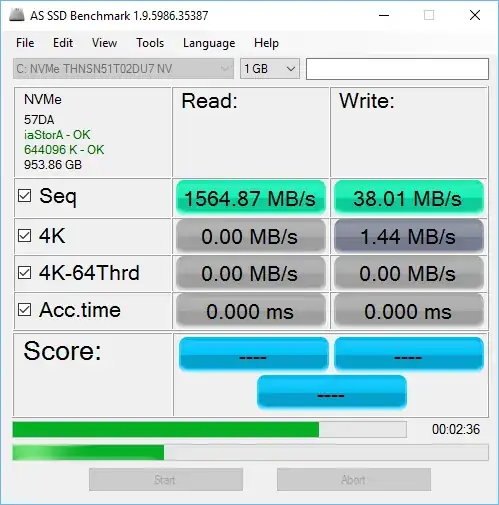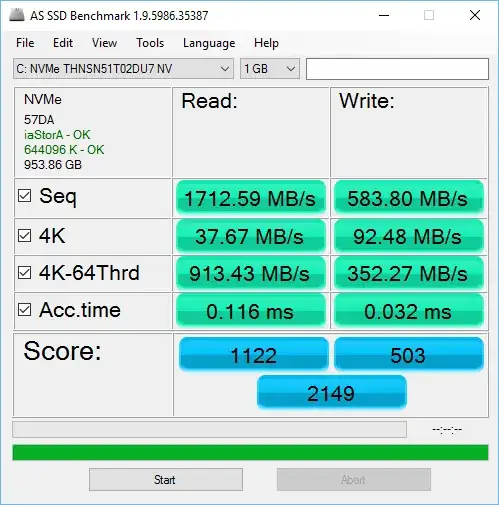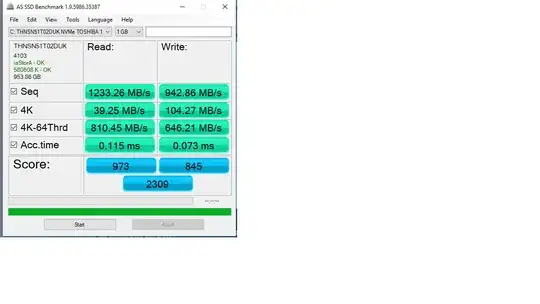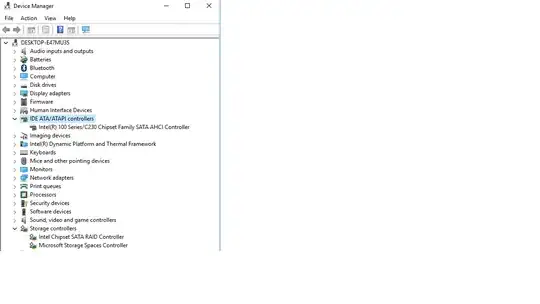You are likely suffering from the Force Unit Access type for your write operations. While it is meant to maintain durability for all writes, there might be regressions especially with NVMe drives and certain device / firmware / driver combinations. The PCMark FAQ is describing something very similar:
PCMark 8 Storage test score is lower than expected. I have a NVMe disk. Why?
[...]
Long answer: New NVMe storage devices run on a completely new software
stack. Traditional SATA drivers are not used and instead there's a new
driver in Windows that can be either implemented by the device
manufacturer or it can be the standard NVMe driver provided by
Microsoft. What is different from old software stack, is that there's
a command called FUA (force unit access) that is now implemented in
Microsoft's driver so that all write operations are enforced to be
written not only on a cache but on the non-volatile media. This is
different from how AHCI was implemented and will lead to reduced
performance. The benefit of the implementation with Microsoft NVMe
driver is that it keeps your data safe in case of power outage or
system crash. The storage performance (and as a side result also
PCMark 8 Storage score) may be improved by installing device drivers
provided by the device manufacturer. For example, Intel provides
drivers for Intel 750 SSD that improve the performance. Another option
is to tweak storage device policies in Windows. Futuremark does not
recommend modifying Windows cache policies on a production system
since it can lead to data loss during a power failure or a system
crash.
[...]
If the NVMe drive is part of your Dell order and the system is still under warranty, ultimately contact Dell support about this issue. They might be able to supply you with newer drivers and / or firmware for this drive which might resolve your problem.
Otherwise, you might want to try OCZ RevoDrive 400 drivers (The RD400 is essentially a retail version of the Toshiba XG3) instead of whatever's pre-shipped with your image. Also, enabling write caching for the drive (if disabled) might speed up matters.



